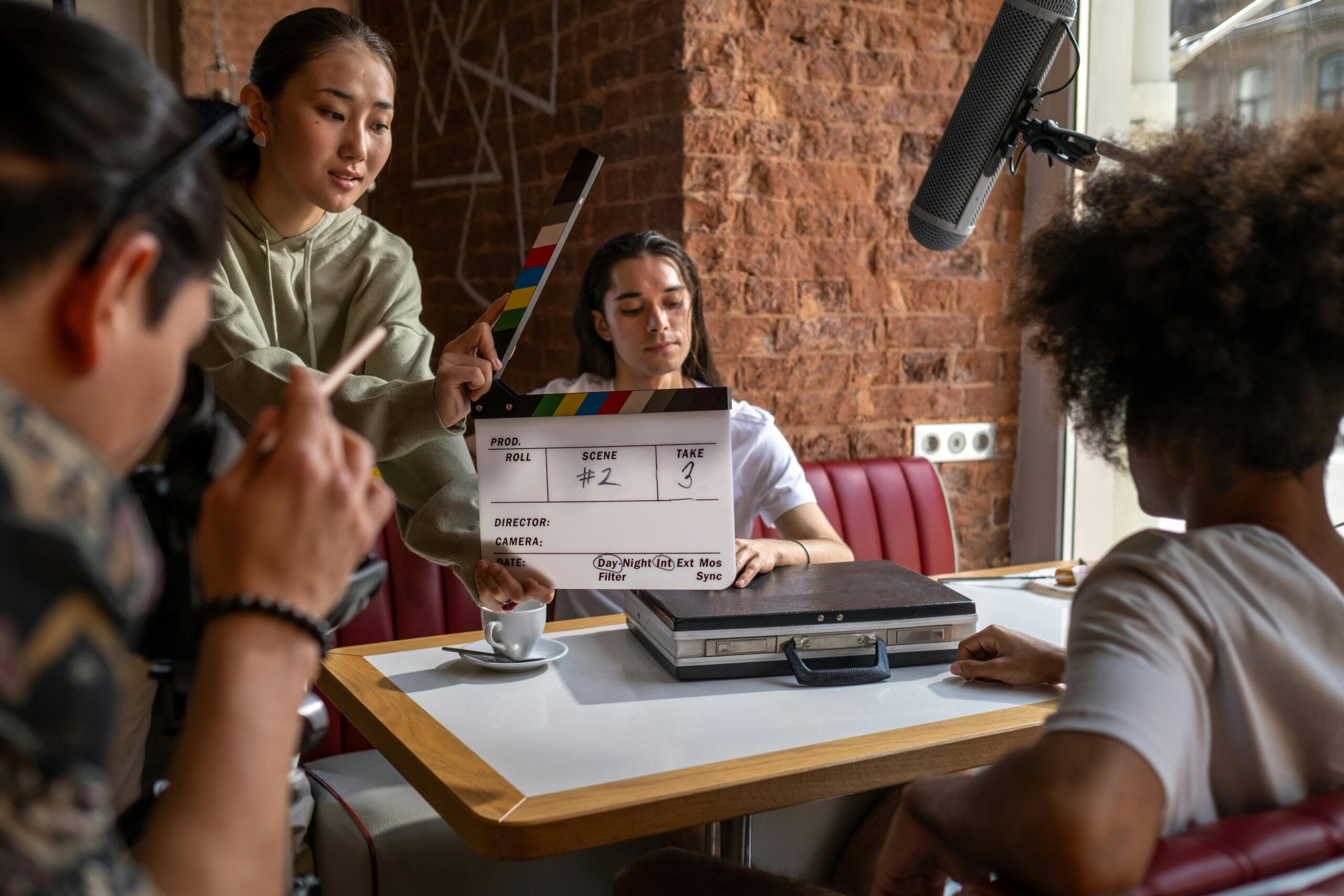
How AI Is Helping the Indian Film Industry with Scriptwriting and Production
- admin
- September 17, 2025
- Entertainment, Tech & Innovation
- 0 Comments
“Lights, Camera, AI: How Technology is Shaping Indian Cinema”
Key Takeaways:
- AI tools are streamlining scriptwriting and pre-production processes in the Indian film industry.
- Machine learning algorithms analyze audience preferences, predict trends, and enhance storytelling.
- AI-driven production technologies are improving efficiency, reducing costs, and enhancing cinematic quality.
What the Numbers Show:
- 25% of Indian production houses are using AI tools for script analysis and market trend predictions.
- AI-powered editing and visual effects have cut post-production times by 30%, according to a 2023 FICCI report.
- Movies using AI-driven audience analytics have seen a 20% increase in box office revenues.
AI in Scriptwriting: The Birth of Smarter Storytelling
Scriptwriting, often considered the heart of filmmaking, is being transformed by AI. Advanced algorithms analyze vast databases of successful scripts, audience reactions, and cultural trends to help writers craft compelling narratives. In Bollywood, where storylines often blend tradition and modernity, AI tools are helping writers identify themes and tropes that resonate with diverse audiences.
For example, production houses like Yash Raj Films have started using AI tools to predict the emotional arcs that connect with viewers, ensuring scripts cater to audience expectations.
Predicting Audience Preferences
AI’s ability to analyze audience behavior is proving invaluable in the pre-production phase. Machine learning models process data from box office trends, streaming habits, and social media interactions to forecast which genres, themes, and actors are likely to succeed. This has led to a 20% increase in box office revenues for films that align with these predictions, according to industry data.
Streamlining Pre-Production with AI
Pre-production, often one of the most time-consuming phases, is being revolutionized by AI. Tools like virtual location scouting and automated storyboard generators allow directors to visualize scenes before they are shot. AI also optimizes casting by matching actors with roles based on their past performances and audience appeal, improving the chances of success.
Enhancing Visual Effects and Editing
AI-driven technologies are streamlining post-production processes, from editing to special effects. AI tools analyze hours of raw footage to suggest edits, saving time and ensuring continuity. In visual effects, machine learning algorithms are used to create realistic CGI and automate labor-intensive tasks, reducing post-production times by 30%on average.
Movies like Baahubali and RRR have used AI-enhanced CGI to deliver stunning visuals that captivate global audiences, setting new benchmarks for Indian cinema.
Challenges in AI Integration
Despite its advantages, the integration of AI in Indian filmmaking is not without challenges. Smaller production houses often struggle with the high costs of AI tools, and there is concern about losing the creative essence of storytelling to algorithm-driven processes. Additionally, ensuring the ethical use of AI, especially in preserving the originality of scripts, remains a critical discussion point.
The Future of AI in Indian Cinema
The future of AI in the Indian film industry is promising. Industry experts predict that by 2030, AI will be a standard tool in every phase of filmmaking, from scriptwriting to global distribution. Emerging technologies, such as AI-driven audience sentiment analysis during pre-screenings, promise to further refine the filmmaking process.
AI is proving to be a game changer for the Indian film industry, combining creativity with technology to deliver smarter storytelling and more efficient productions. As the industry continues to embrace AI, the future of Indian cinema promises to be more innovative, inclusive, and globally competitive, ensuring a cinematic experience that resonates with audiences everywhere.




